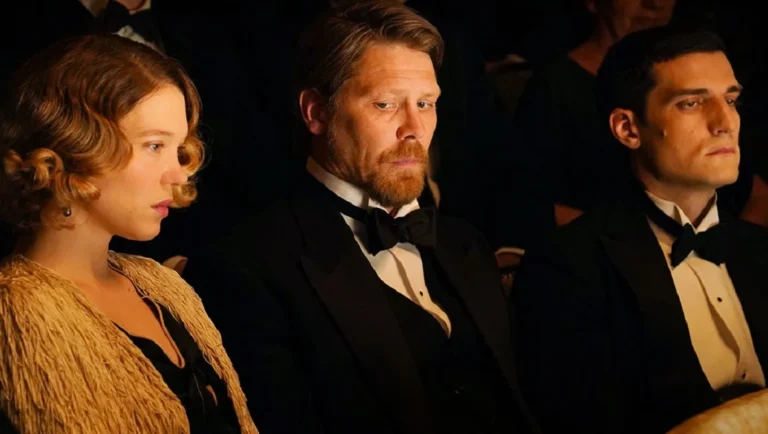After the resounding triumph of On Body and Soul, a film whose stoic tenderness and tactile intimacy proved an outlier among recent Golden Bear winners, Ildikó Enyedi returns to the director’s mantle with her long-anticipated adaptation of Milán Füst’s wartime novel, which tells the tale of one Captain Jakob Störr, a Dutch commander of a cargo vessel who suspects his wife of infidelity. No less personal, enigmatic, or affecting than the director’s previous work, The Story of My Wife locates within its period setting a similar focus on human relationships and their frequently fickle, fragile uncertainties, pitting the clarity of reason against the mischief of emotion in a teasing, frustrating, and wholly relatable compendium of romantic deception and possession. Enyedi’s wry application of conceit suffuses her films with a delightful serendipity through which emerge the playful, pernicious dialectics of love entrapped by radical freedom; where On Body and Soul mediated between both of its faculties the promise of a shared, snowy dream, The Story of My Wife adopts as its first premise a principle likely to be considered distasteful today: the principle of foolhardy bravado that afflicts our unfortunate captain as he announces to his friend, in a café, the intention of marrying the first woman who walks in.
That this intention is duly succeeded by action, and an action of resounding success at that, underlines the witty absurdity which Enyedi nonetheless grounds in reality, as most euphoric flights of such fancy go. The “flounderings” of Jakob hence commence, digested and imparted through seven lessons tracing the marriage and dissolution of the hapless Dutchman (Gijs Naber) and Frenchwoman Lizzy (Léa Seydoux) upon her acceptance of his proposal. A solitary figure of authority his whole life, Jakob commands respect for the starboard’s rank and expertise, but remains excruciatingly yielding in matters of the heart. Idolizing and idealizing his young wife as another possession to be prized for her beauty and ostensible predictability, the earnestly fledgling lover retreats back to the clockwork of the ocean, certain, or hoping to be certain, that she will be waiting for him, pristine, upon his return. But when Lizzy is first reported in the company of a suave writer (Louis Garrel), and then openly seen in flirtatious exchange, Jakob’s burgeoning paranoia weighs on their delicate romance, instigating a sensual yet poisonous pas de deux destined to collapse under the steely threat of its love triangle.
In situating the narrative’s point-of-view squarely in Jakob’s relative inexperience and prudishness, The Story of My Wife will be, as it has no doubt been (based on its chilly reception at Cannes), faulted for an absence of cultural prescience, exacerbating its leisurely 169-minute runtime with a possibly regressive disapproval of the women who live independent lives outside the purview of their husbands. Such a criticism, however, presumes merit necessarily in reflexivity, placing the ideological obsession with self-abnegating critique over the more illustrious poetics of ever-shifting sexual politics and relegating the more traditionalist output of, say, Pedro Almodóvar and Arnaud Desplechin to blanket labels of misogyny. And where the psychological game of cat-and-mouse between Jakob and Lizzy reaches an impasse on occasion, Enyedi imbues the framing of her tentative, circumspect characters with a reserved magnificence assisted, rather than ailed, by the film’s adoption of English as its lingua franca. Sumptuously lensed as historical dramas go, The Story of My Wife dramatizes its historical backdrop for current and no less confusing times, exploring with equal bitterness and sentimentality the unresolved and perhaps irresolvable negotiations between control and chaos, pride and propriety in the violent but vital seas of impassioned love.


Comments are closed.